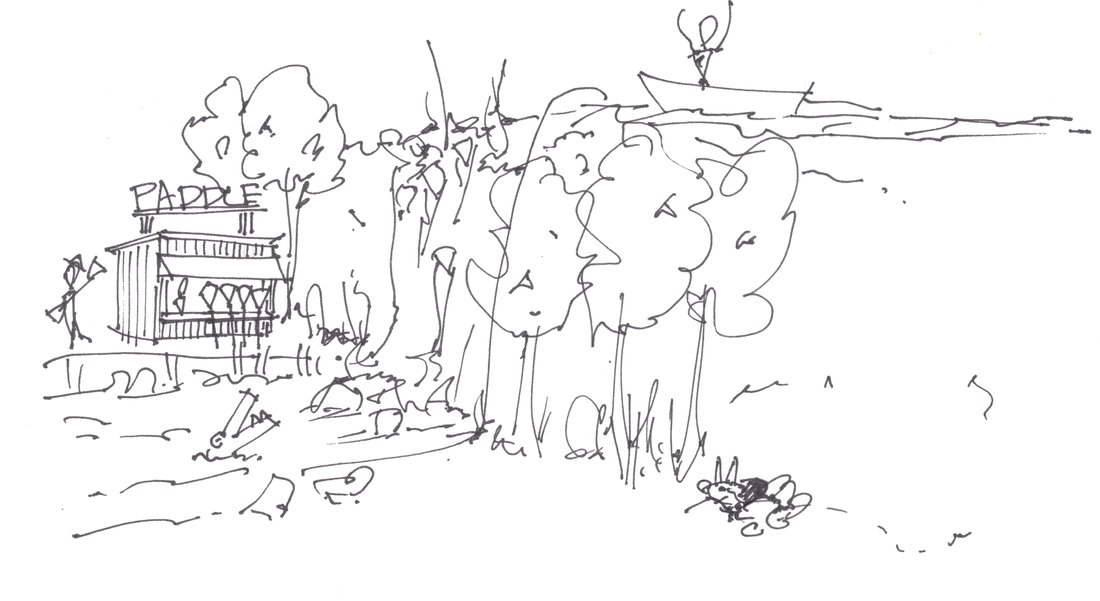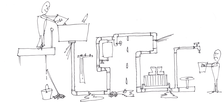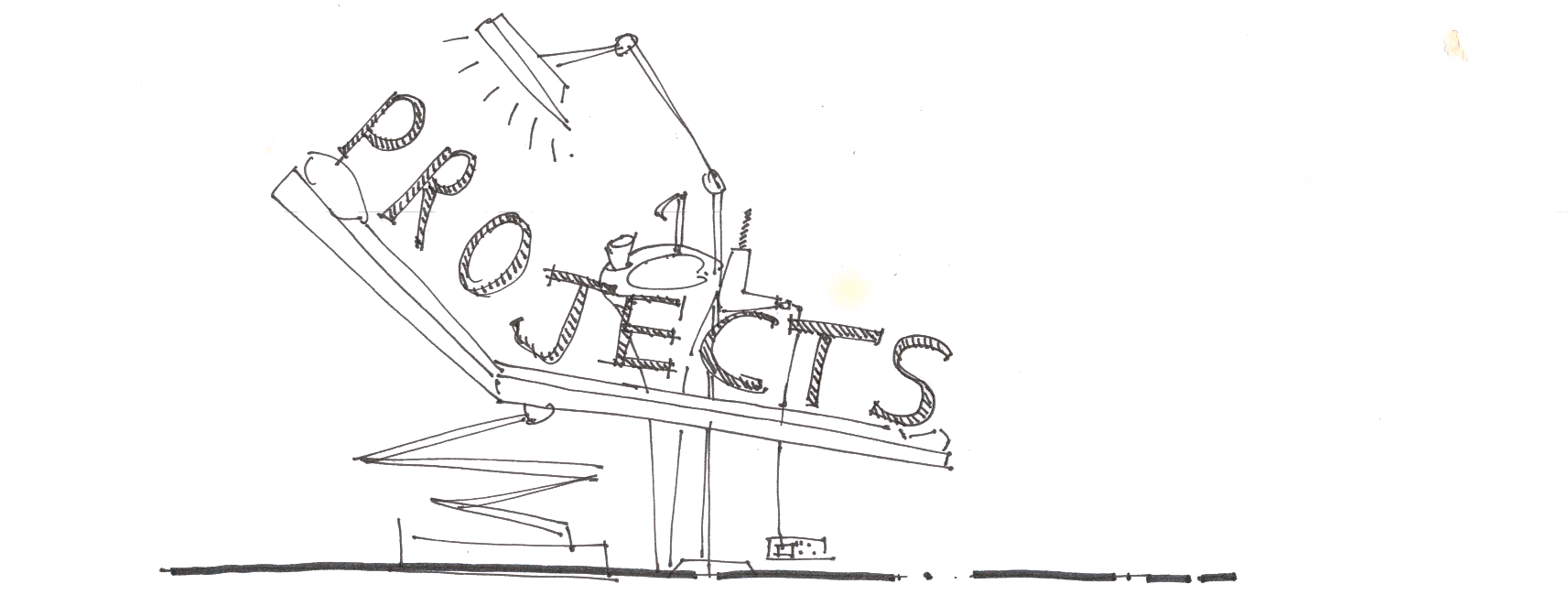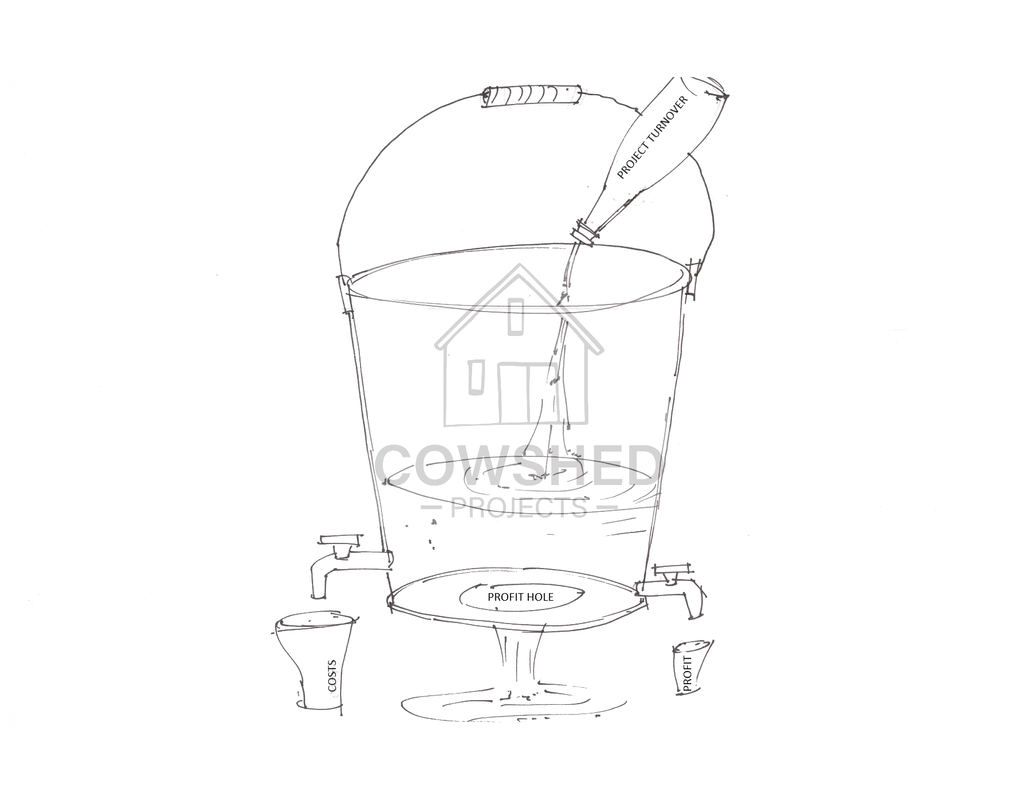|
I’ve been lucky enough to be involved in quite a few of projects. I do like projects there is always something that makes them unique and they add to the entertainment or nonsense of life ….. people, subject, location. I bought a plane for a project once, second time I had to I left it to someone else! They’re quite cheap considering, but difficult to park! One obvious thing that happens, is that when projects don’t go to plan (and most projects don’t go exactly as planned for various reasons) they become challenging. Sometimes problem gets acknowledged and it’s not so bad, but the more difficult problems are magnified by being ignored, lost in the multiple other things to do, in the hope they can be rectified by someone else. I’ve been as guilty of ignoring a problem as the next person and sometimes patience is a virtue … but more often than not hope is a killer. Hope that somehow carrying on the same, will produce different results and that the project will suddenly be back on track. The end date stays the same, but you’ve lost four weeks and somehow you will make that time up or maybe hope there is something in the contract that was overlooked so you can somehow claw lost cash back. Sometimes you get lucky, but the law of probability is that you will not rectify the full problem … (as boring as it sounds and as much as you want to be the superhero) …. It’s better to accept what’s done is done, report and readjust to what is achievable based on what is likely to happen moving forward. As good as you are, you probably won’t claw the program back eg. you won’t complete furnishing and commissioning 50 rooms in 2 weeks when you’ve only completed 10 in 1 so far. You won’t claw the budget back and be able to save 100% on a contract cost that was missed in the quote. Even if you think you are superman (read 5 ways a project leak profits) You’ll waste more money by throwing more effort and time at the problem and exasperate the issue by trying to overturn the probability. Yes, mitigate the best you can, but you should be doing the best you can anyway!
So … if you find your project up the creek without a paddle …. Don’t hope a paddle will turn up! The chances of you drifting past a paddle shop are very slim .. yes it may happen!! … if you wait, the hope will kill you as you drift off the edge of a waterfall …. It’s better to accept your problem sooner rather than later. Maybe make a rudder out of something and try and divert away from the danger. Too much of a metaphor … probably …. but I like it, hope you do to. This is first principle thinking and will save you money in the long run!
0 Comments
How often do you look at the prices in a supermarket? The price legally has to be displayed, so it should be there. Maybe you’re lucky enough not to have a budget and you don’t need to pay attention. But if you are looking to get the best value and keep to whatever budget you have, the key information you need is the price. Likewise, information is a key ingredient to maintain a profit on projects. Either supplying it or receiving it and not only cost data. Without it, who knows what’s going on or has been done? Also, as at a supermarket, where the cost is tied into the volume, perceived quality, lifestyle choice etc … Too much, or focusing on the wrong information is a bad thing, it gets confusing. The thing about information is that it isn’t useful unless you make sense of it. It’s just a bunch of letters or numbers or marks. These words don’t mean anything unless you understand them! Just a bunch of straight and curved lines on a screen. If you don’t understand English, you won’t understand this! Without understanding and making information real to you, you can’t make educated decisions. So how do you make sure you make information become useful and real in a project environment? This is a little abstract but I hope it works for you, it’s an idea I came up with to help me understand! Information as an apple tree. A tree takes nutrients from the soil, sun and rain to grow. These are the building blocks for it. This is the information forming into a tree. Alas, no two trees grow the same, but you can control them. Prune branches, nip new buds, stake it to grow straight and it will fit the place where it’s growing, to be stronger or look better. If that’s what you want. Look in the right places and you can predict where and how much fruit there will be. Then at certain times it produces the apples, the things we need from it, the specific information! This is how project information works. At the start there is very little, but you have an idea what it should be. After all, we all know vaguely what an apple tree should look like! As the project progresses all the different information comes together and it grows bigger. Like the apple tree, you can control it to a certain extent, to make it fit the project environment. And then at certain stages you pick off the information you need. How does this help your project? If you control the information so it fits the project environment, you can get the best information you need. If you look forward to see how your project is growing, by looking closely and see the signs, you can predict what fruit there is going to be. If you can pick the fruit (right information) when it is properly developed, you can understand where the project is. Then you have an informed chance to decide what to do as the project grows. How do you do this? Well, firstly and importantly understand what information you actually need. Then focus in on the source of that information to predict and confirm when that information is ripe. Don’t do this and you end up just looking at another tree, hoping it will bear something useful for you to use. Maybe I’ve overdone the metaphors on this one … but hopefully it makes sense to explain a tricky subject that is very important to your success. I'd love to hear your views, experiences and comments and if you're interested in finding out more, drop me a line.
Thanks for reading Simon I've had the pleasure of working as client, contractor, designer, consultant and project manager and I'm extremely grateful to have experience them all in order to understand all sides perspective. ..... But it’s also given me the opportunity to see and avoid the disconnects .... where the money leaks away when managing a project. Here are 5 key areas where time and money can get wasted. 1 - PROJECT INCEPTION Lets start at the beginning... sales/development win the project. They hand it over. It gets done.. easy..... Yes, for them. No for the project! This is the key part of a project .... the start is where a project starts to fail. It's the one time you get to really negotiate and influence, not just the price, but also how the project will be run. If the negotiation is blind to the project needs and is only about securing the work, you have missed a golden opportunity to deliver it in the best way you can for yourselves and the client So this is how it goes, ‘Here's the project’, as the client has stipulated, throw the potato .... and ..... “boom”, waste time having to backtrack, find information, realign the communication and make a plan to fit, all at the same time as needing to start the work...not have the best plan to move forward with. You are immediately reacting and on the back foot. The costs are being used up and you are going backwards, not forwards. Easy attitude is "Meh, there's time to make it up"... but both time and money are finite on projects. You are already eating into your profits. A bit of forward project planning and understanding of projects at the start, while the project is being secured, would help maintain profit. 2-BETWEEN DESIGN AND PRODUCTION The biggest obstacle here is that the design process and production process are at odds with each other. Design is a process of achieving the best solution .... production is the process of getting the best value... Both in the most efficient time. I think of design as a series of loops ... Construction as a flat line. Where they meet conflict and leaks appear as you try to flatten the design out. The conflict occurs because design won't let go. They continue to have the mindset to improve it and production want to grab it and run with it, not look back! Much time and money are wasted here in poor/unclear information, unchecked assumptions and bad communication. But, if the transition is managed well and understood, wastage can be reduced. 3-BETWEEN FINANCE AND THE PROJECT A lack of project information is where everyone misses out on projects. Without information you can’t manage a project and you certainly can't review it! You just have to wait till the end and hope for the best. Finance is one of the most important parts of project information. The problem being that Finance and the project are at odds with the information they need. Finance needs predicted information to know what's coming, the project needs real information, to see what's gone before and so often neither understands the others needs ... A disconnect results in repeating work and producing meaningless or out of date information that isn't trusted on both sides. Garbage in, garbage out. Wasting time and money. Keep information simple and relevant and you have a chance! 4- BETWEEN SITE AND WORKSHOP Distance is a killer in communication, shown at its worst between the workshop and site. The times I have seen all the thinking and planning in the workshop being lost in translation on site and vice versa is uncountable. Work gets repeated, redone, or not relayed correctly, if at all. This is a massive profit hole in the bucket, that can't be entirely blocked. However, it can be reduced. Unfortuntlaty, the site team are out of sight and out of mind ... Listen to them! 5-SUPERHEROING I have another name for this, but for now this is a good title! Superheroing happens for many reasons, but is the act of a senior manager stepping in and taking control of the project from a person or process that is seen to be failing. Nothing wrong in that, trying to make it better…. Bring in a superhero .... Apart from its always far too late ....a result of not listening, bad reporting or wrong information. Being focused on or saying only what people want to hear, not what is actually happening. But the profits don't need a superhero ..... When someone jumps in and takes control ... The issues don't change... The problems don't go away ... You can't reverse time ... Yes, you can do things in a better way, but you are still working with the same project ... I’ve yet to see this happen a different way, even when I’ve tried it myself….. The superhero ends up wasting time, finding out the same issues, asking the same questions and fighting the same battles that have got the project into the mess in the first place! Everyone repeats themselves. The question is why has it got to this? ...but that’s another blog! The project does not need a hero if it gets to this stage, it needs a supporter. It needs the issues finally understood, worked with and an honest evaluation of what can be done given. That, or you waste money getting to the same point that the caped crusader arrived at. Don't get me wrong I've worked with some brilliant people and companies who do things really well, I've learned a lot from them. I’ve tried, succeeded and failed at solving all of the above myself. Awareness is the first way that these can be avoided. Every project, though, will be different and there is no tool or process that will give you the answer for all. The best way to avoid the leaks though management is to look forward, adjust the tools and processes as needed … and stop wasting money! I'd love to hear your views, experiences and comments and if you're interested in finding out more, drop me a line.
Thanks for reading Simon I've not been to the dentist for a while, its lockdown and I cant get my routine check. My teeth don't feel quite as clean as they could, I do clean them twice a day, floss and use mouth wash. Just in case we see each other, my breath is OK!! My teeth are very important to me ... they help me eat ... I'm quite attached to them and them to me!... in my teens I had quite a lot of work to straighten them, get them right. But I know I can to a certain degree look after them and when I get a check up, there maybe advice how I should look after them better, to prevent things getting bad. If I have an issue the dentist steps up and does more intensive treatment. Then lets me get on with it. I do look after my teeth as best I can, to get the best out of my teeth I need to get regular check ups, just to make sure things are OK, and if they're not, the dentist can step in before it gets to late. The more I see the dentist, the greater the chance of problems being caught early. So I see him at regular intervals, on his advice, he's the expert, but not obsessively that I can't afford to feed the kids!! This is how I see project management for the smaller company. Projects are very important to you, they're your companies life blood, you're attached to them, but you don't need, want or afford to constantly check up on them! You can brush them yourself! Until they go bad. Then its to late. If you don't review your projects at certain intervals, they'll more likely rot or tarnish and not be as good as they can be. If you wait till the end they've fallen out .... so what's the point!! The idea is, to get the best out of your projects, don't take them for granted and carry on regardless of what they need. Don't assume that they'll be the same, take them to the dentist. Get them reviewed as you go and make sure you're doing the best for them you can. I'd love to hear your views, experiences and comments and if you're interested in finding out more, drop me a line.
Thanks for reading Simon I’m not that great with words. If I need to understand something, I have to visualise it, then I understand … this is something I visualised a while back, it helped me out of my own sad hole and understand what difference I can make, and ways to help (With a bit of help from the lazy project manager, thank you Peter Taylor). So, this seems like the perfect place to start to share! The profit bucket … I hope it helps you too. If you’re in the business of delivering projects, the most important thing you do is the project. It’s what pays the bills ….. A project is a one off event and you only get one shot at it! One chance to deliver the best you can and make the most from it. As a business, this is invariably the profit. But how does it work? I’ve been in many end of project reviews and the one thing that seems a common occurrence is that the profit isn’t as much as predicted..... Cue finger pointing ... Blame the estimator, blame a department, blame someone, blame a mistake, we all make them …. some bigger than others …. But when you really look its not just one thing. It's not that easy and obvious ....Or is it ? Let’s look at a project and profit in the form of a bucket, with a couple of taps … Simple idea … you pour the projects turnover in and, during the course of the project you drain off the costs and simply open the profit tap at the end and out they come! Yes, in an ideal world … but we don’t live in an ideal world. There is also a hole in your bucket .. a hole that can’t be fully closed up. Unless you're looking you don’t see it …. This is productivity. And this is where the profits drain unnoticed. The less productive, the bigger the hole and the more profit you lose. So to protect your project profit, look at the productivity and a big source of this waste within a project is not in the production, because production only react to instructions …. It’s in the instructions and direction …. and these come from management …… Poor instructions are a result of: quick thinking, not understanding, poor information and poor communication … Usually this is due to a lack of experience, structure and defined roles and responsibilities … and this stems from: poor planning, no reviewing or lack of forward thinking… Loss of profits are as much managements fault than anyone’s … Even though we like to waste more time, be more unproductive, look to blame something else……Find the pharmakos, after all we're too important and good looking to be one of them (look it up)! The good news? It’s easy to reduce the hole, once you understand where and how the hole occurs .... and generally, all it takes is self-awareness, humility, experience and forward thinking to reduce it .... Not reacting … But more on that another day. I'd love to hear your views, experiences and comments and if you're interested in finding out more how this can help you, drop me a line.
Thanks for reading Simon |
AuthorHi I'm Simon. I've worked in projects for a while now, either management or design. I love projects but they're frustrating. Hope some of this help you. Archives
October 2023
Categories |
Copyright © 2015













 RSS Feed
RSS Feed